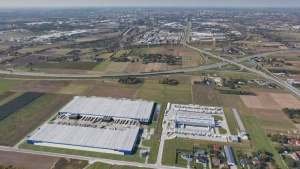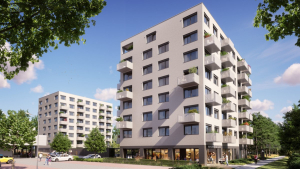
Panellists at our virtual European ESG Forum have pointed out that environmental, social and governance criteria are gaining prominence in property investment. Going forward, as ESG certifications become mainstream, securing funding for green buildings will be streamlined, according to the panellists.
Hajo Engelke (Managing Director, Westbridge Advisory International) said that almost all investors that raise institutional funding are asked about their ESG strategy when it comes to capital allocation. He added that the European Union will regulate the real estate sector more in the future, ranging from the source of construction materials to the type of energy used in the buildings. Tenants might not always be able to afford the higher rent and utility costs, however.
What is sustainable and what is green needs to be defined better through regulation and market platforms, added Vlaho Kojakovic (Director of Property and Tourism, EBRD). Three years from now, developers with a portfolio that is not green certified will have to compete against companies that bring fully certified portfolios to the market. Kojakovic said that banks replicate some of the standards from the green bond market when it comes to funding individual projects.
Dr. Astrid Offenhammer (Senior Manager - Sustainability & Strategic Regulatory Services, PwC Switzerland) spoke about the circular real estate economy. This encompasses everything from carbon emissions to energy efficiency, but also the whole value chain for the construction of new buildings. Offenhammer added that going green is already more cost-effective if we look at green mortgages with preferential terms for customers. Moreover, in the EU action plan on the circular economy, real estate and construction is one of the focus areas.
Joanna Plaisant (Strategic Partnership and Sustainability Associate Director, Arcadis) described how consultants can make investors more aware of factors like carbon emissions and ESG. Getting ready for these matters can help developers make their real estate projects future-proof, suggested Plaisant.
Adam Targowski (Environmental Director, Skanska’s commercial development business unit in CEE) mentioned Skanska’s target to achieve net-zero carbon emissions in its operations and value chain by 2045. Targowski said that this objective considers three elements: supply chain, operations and the delivered buildings. He added that the biggest challenge in the EU’s attempt to meet carbon neutrality targets is the old stock of residential and even commercial buildings that will have to be upgraded.
Martin Vaidiš (Head of Design and Development, CTP) suggested that banks, investments funds and investors are getting more interested in ESG certifications for projects. However, at present, it’s not very common for evaluators to consider such ratings. Some regulation is needed to make ESG principles mainstream, but in the next 2-4 years we might see this become a common rating like BREEAM or LEED, Vaidiš said. Meanwhile, developers will want to know what rating standard will generate the most value for them.



